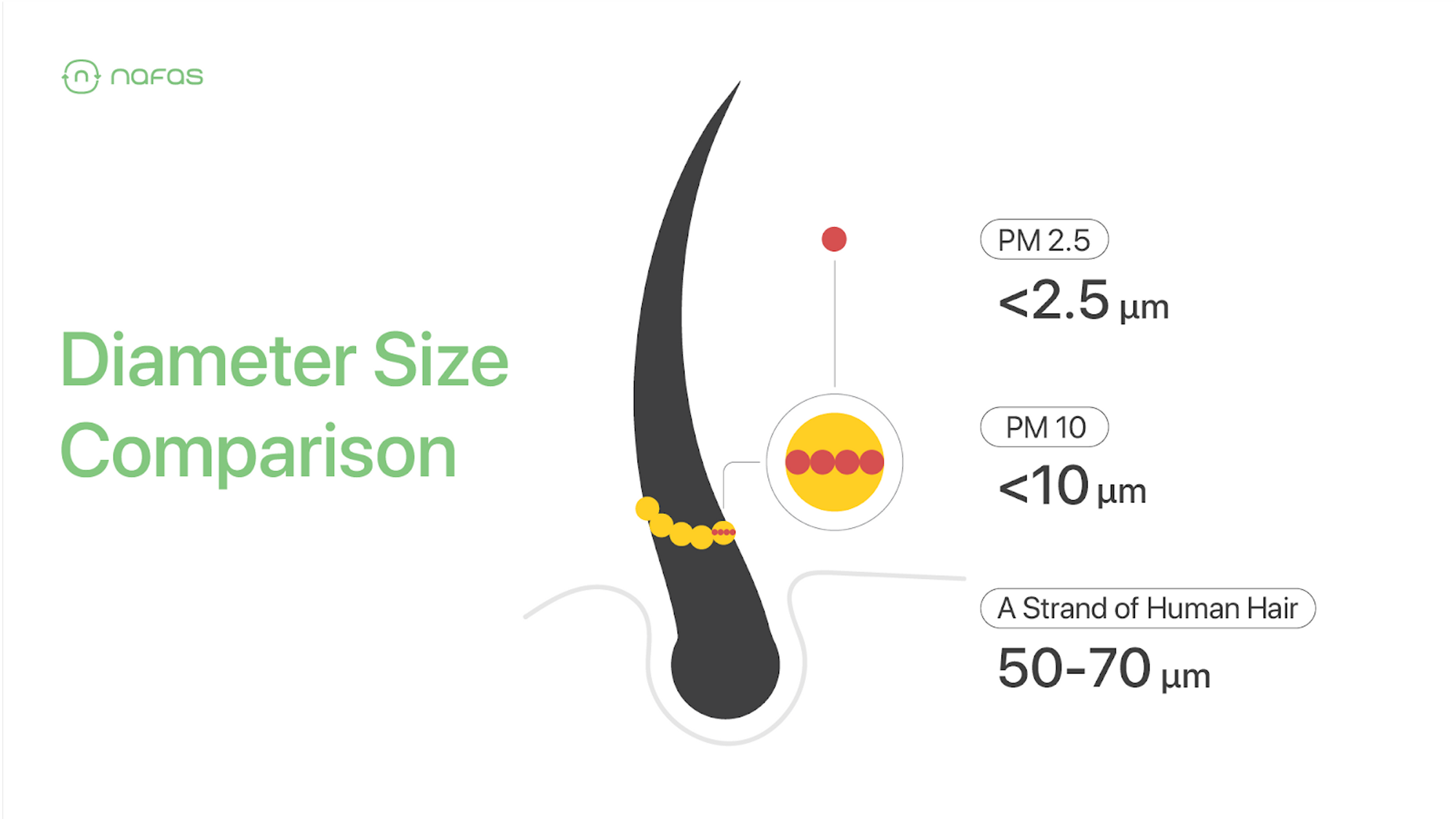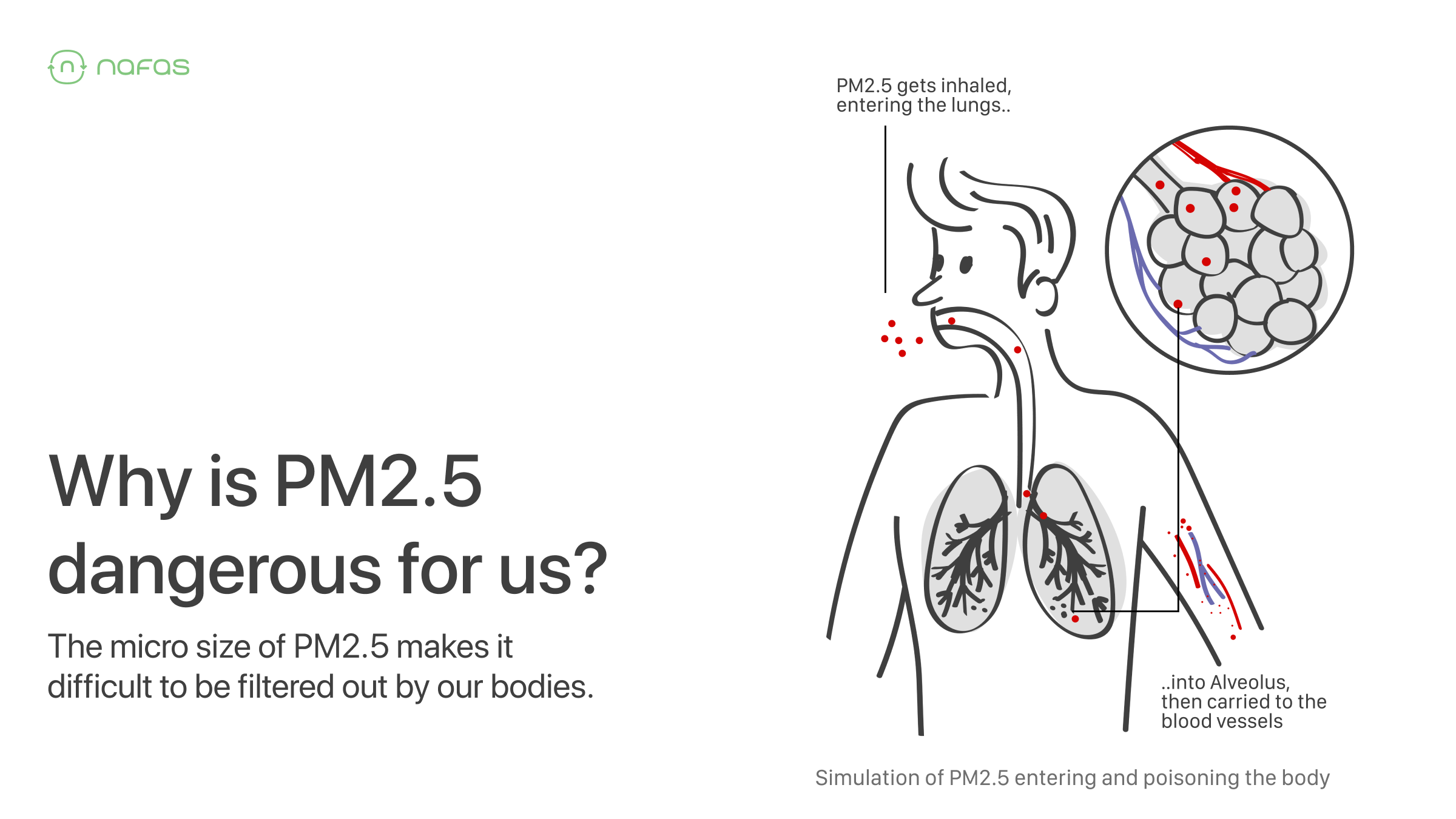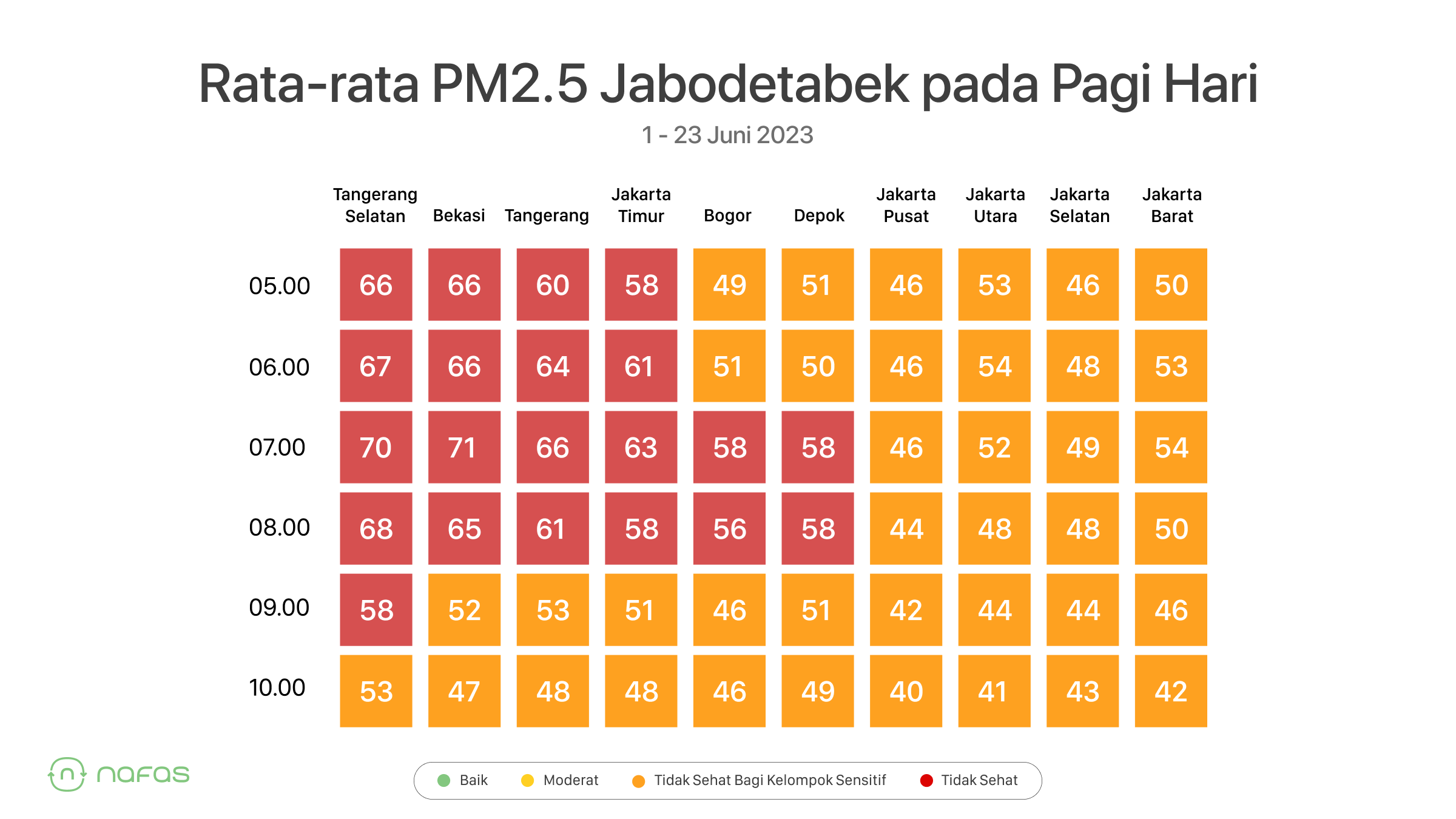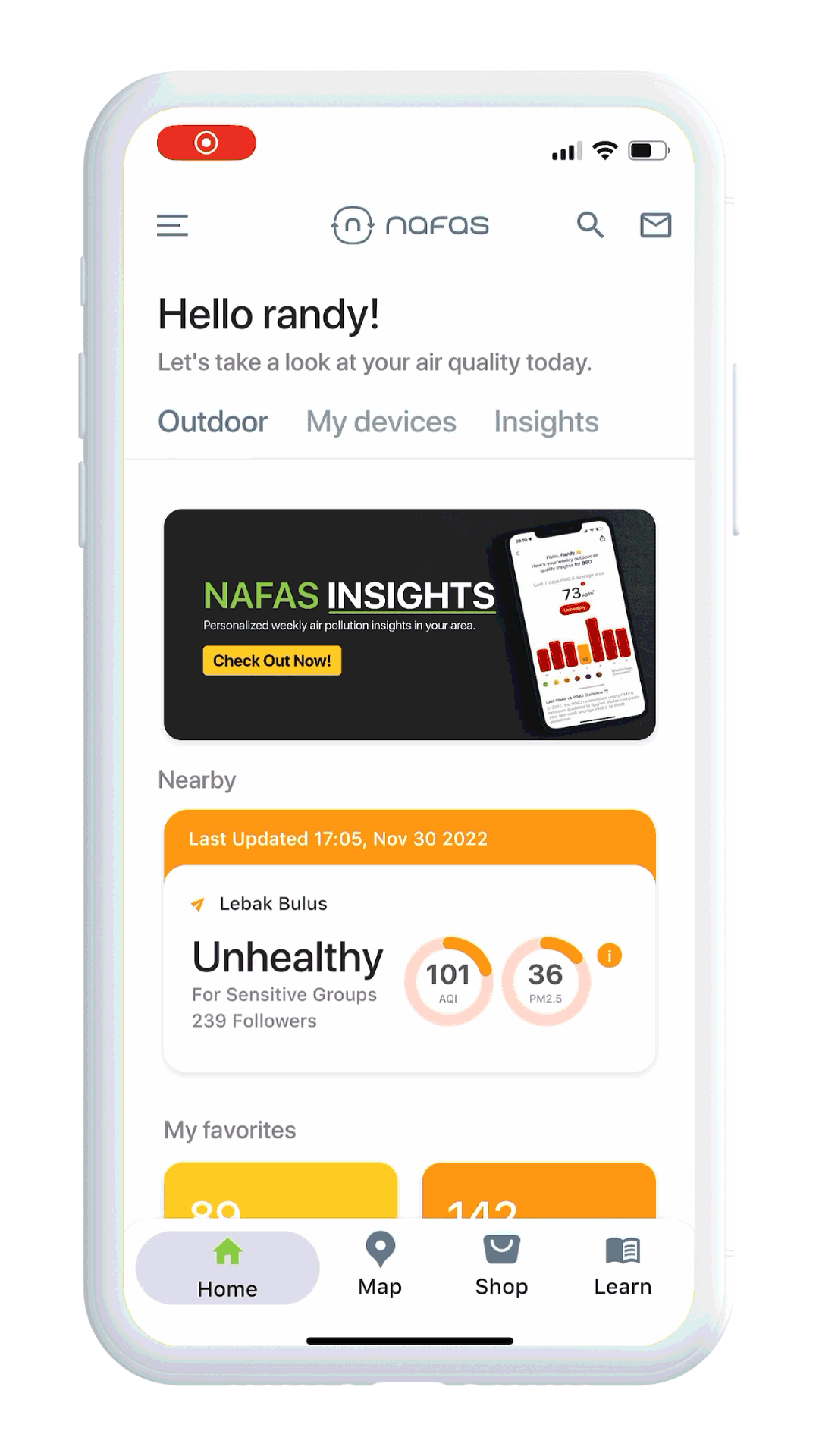Everything Pregnant Women Need to Know About the Dangers of Air Pollution
Air pollution is becoming increasingly uncontrollable, especially for residents living on Java Island, specifically in the Jabodetabek area. The May 2023 Air Quality Report by Nafas indicates a drastic increase in air pollution levels across various regions. Tangerang Selatan has been identified as the most polluted area, with PM2.5 pollution levels reaching 59 ug/m3, which is 10 times worse than the WHO's annual guideline.
This is undeniably a serious issue as it poses a significant threat to our health. When it comes to air pollution, our common enemy is PM2.5, which refers to tiny particles of pollution that can be inhaled into the body and transported into the bloodstream.
Although DKI Jakarta often receives attention as one of the most polluted cities in the world, the surrounding cities such as Tangsel, Bogor, Depok, Tangerang, and Bekasi actually have even higher pollution levels. Surprisingly, Tarumajaya in Bekasi has the worst air quality, equivalent to smoking 115 cigarettes in a month! 🚬
This is indeed concerning because we cannot choose the air we breathe. It means that people from all walks of life, including pregnant women, are inhaling the same polluted air. Numerous studies have confirmed the negative impact of air pollution on the health of pregnant women and their fetuses.
So, what can pregnant women living in polluted cities do to reduce their exposure to pollution and minimize its harmful effects on their health?
We have compiled a collection of informative and helpful Nafas articles specifically aimed at providing guidance and information for individuals, including pregnant women, and their family members who are concerned about the quality of the air they breathe.
Let's take a look at the complete guide below! 👇
What is PM2.5 and Why is it Dangerous?
PM2.5 particles can cause significant health problems. These particles can enter our lungs and subsequently enter the bloodstream. The danger lies in the fact that PM2.5 consists of toxic substances such as nitrates, sulfates, heavy metals, and other chemicals.
Is PM2.5 Dangerous for Pregnant Women?
Pregnant women breathe faster than others, and their hearts work harder to ensure their fetus receives enough oxygen. The logic is similar to that of people who exercise. The more we breathe, the more air and pollution we inhale.
The impact of air pollution on pregnant women can be significant and detrimental. It can lead to damage to the placenta, resulting in complications such as premature birth and low birth weight for the baby.
PM2.5 Pollution Particles Found in Fetuses
A recent study has uncovered a concerning finding – fine particles of PM2.5 pollution were detected in both mothers and newborn babies, indicating that fetuses are exposed to air pollution even within the womb. Moreover, PM2.5 pollution particles were discovered in the liver, lungs, and brains of aborted fetuses, while black carbon particles were found in all tissue samples analyzed.
This discovery underscores the urgent need to address air pollution and its detrimental effects on the health and development of unborn children.
Why is PM2.5 Dangerous for Children?

Air pollution can have a significant impact on the growth and health of children, especially infants and toddlers. Every day, around 93% of children under 15 years old worldwide (1.8 billion children) breathe highly polluted air. Children are particularly vulnerable to air pollution because their lungs are still developing.
Air Pollution Threatens Children's Health
Children are particularly vulnerable to the adverse impacts of air pollution due to their developing lungs, organs, brains, and nervous systems. The period of growth and development in children plays a crucial role in shaping their future health and well-being. It is important to note that children's lungs require a significant amount of time to fully develop and mature. Unfortunately, their growing bodies are highly susceptible to the harmful effects of pollutants, including the hazardous PM2.5 particles. Addressing air pollution becomes imperative to safeguard the health and future of our children.
How Can I Protect Myself and My Family from Air Pollution?
Air pollution can significantly affect our health, but there are steps we can take to help protect ourselves and our families, which you can learn in the article above.
High Pollution: Is it Safe to Sunbathe Babies?
PM2.5, particulate matter with a diameter of 2.5 micrometers, is an air pollutant that can have highly dangerous effects on humans, especially vulnerable groups such as children and infants.
Nafas data shows high levels of PM2.5 pollution in the morning, coinciding with the usual recommended time for sunbathing babies.
To help keep babies safe from pollution exposure, make sure to check the air quality before going outside and sunbathe the baby. When air pollution is high, it is best to avoid going outside and sunbathe the baby in a corner of the house exposed to sunlight.
How to Activate Baby Sunbathing Notification Alerts
The Nafas app offers a feature that provides alerts specifically for sunbathing babies. By activating this feature, you will receive direct notifications when the air quality in your location is deemed good and safe for sunbathing babies. This ensures that you can make informed decisions regarding your baby's outdoor activities while considering the air quality conditions.
Follow the steps below to activate the special alerts for sunbathing babies:
- Choose the sensor closest to your home.
- Scroll down until you find "Air Quality Notifications" and select it.
- Choose the time you want to sunbathe the baby, such as 6:30 AM.
- Done! You will receive a notification if the air quality in your location is safe for sunbathing the baby at 6:30 AM.
Checking Air Quality Made Easier with This Feature
Given the fact that children have developing organs, it is crucial to prioritize their health by checking the air quality before they engage in outdoor activities.
To facilitate this, we recommend utilizing the favorite locations feature in the Nafas app. By setting your home location and other important places such as schools, offices, tutoring centers, etc. as favorite locations, you can easily check the real-time air quality for these specific areas. Simply tap the ❤️ icon on the locations you have selected, making it convenient to stay informed and make informed decisions regarding your children's well-being.
💡 Having understood the potential risks that pregnant women face, it becomes crucial to remain vigilant in order to protect not only our own health but also the well-being of our unborn children. It is essential to consistently check the air quality before engaging in any activities and prioritize the use of a mask, such as an N95/KN95 respirator, when venturing outdoors. By adhering to these precautions, we can significantly reduce our exposure to harmful pollutants and create a safer environment for both ourselves and our precious unborn babies.
☝️ Follow @nafasidn on Twitter and Instagram to stay updated on air pollution issues.